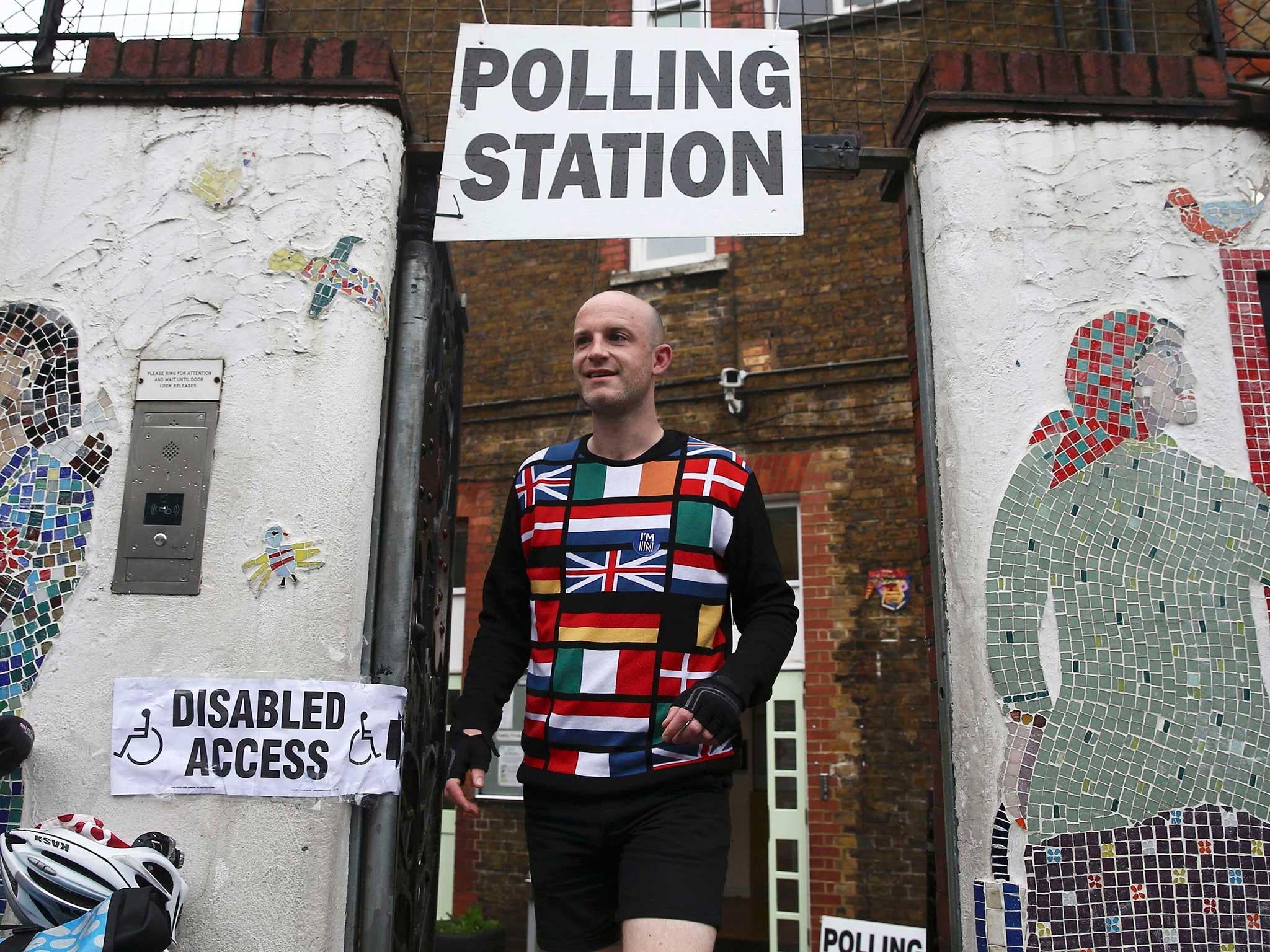Foreign hackers may have hit voter registration site days before EU referendum, say MPs
Committee chair says attack would be 'entirely in character' of previous actions launched by Russia and China

A foreign power may have been behind the crash of a key voter registration website in the run-up to the EU referendum last year, an influential group of MPs has concluded.
The committee said it could not dismiss the idea that the site, launched to ensure as many people as possible voted in the historic referendum, was downed by a cyber attack using so called “botnets”. In a critical passage it states: “We do not rule out the possibility that there was foreign interference in the EU referendum.”
Its chairman told The Independent that such attacks are “entirely in character” of previous actions believed to have been launched by the agents of Russia and China.
It follows other accusations that Russia meddled in the June referendum as well as elections in the US and amid heightened tensions with Moscow over its role in the Syria conflict.
In its report the Commons Public Administration Committee claims that Russia and China use “a cognitive approach” to cyber warfare, which employs an understanding of mass psychology to manipulate individuals to their ends.
Committee Chair Bernard Jenkin said: “We’ve seen this happen in other countries. Our own Government has made it clear to us that they don’t think there was anything, but you don’t necessarily find any direct evidence.
“We have taken advice on this and you cannot rule out the possibility it was a direct attack and so, the point we make about the Russians and Chinese psychological approach to this kind of thing, means that it would be entirely in character.”
The Register to Vote website crashed on the evening of 7 June 2016, less than three weeks before the critical vote.
Ministers have stated this was due to an exceptional surge in demand, partly due to confusion as to whether individuals needed to register to vote.
While accepting there is not direct evidence of an attack, the committee report said: “We do not rule out the possibility that there was foreign interference in the EU referendum caused by a DDOS (distributed denial of service) using botnets, though we do not believe that any such interference had any material effect on the outcome of the EU referendum.”
A DDOS is designed to bring a website to its knees by flooding it with useless traffic, either from botnets, a network of private computers infected with malicious software, or from web users who have been encouraged towards a particular end.
Mr Jenkin said: “They might have thought it was going to advantage one side or another. Or they might have wanted to be seen to be disrupting a western democratic process.”
He added: “Our recommendation is primarily precautionary. We recommend the Government set up a monitoring unit, to ensure the kind of interference that has been claimed more widely in other countries, is not going to happen in our country. That’s important for public confidence in our democratic process.”
Labour MP Ben Bradshaw has claimed it is ”highly probable“ that Vladimir Putin’s Russia interfered in the Brexit referendum. Speaking in the Commons debate on Aleppo in December, he said: ”I don’t think we have even begun to wake up to what Russia is doing when it comes to cyber warfare.
“Not only their interference, now proven, in the American presidential campaign, [but] probably in our referendum last year. We don’t have the evidence for that yet. But I think it’s highly probable.”
In pictures: European parliament Brexit discussions
Show all 12The CIA has said Russia interfered with the US election and actively helped Donald Trump win the White House. The agency suggested emails hacked from the Democratic Party and given to the WikiLeaks website aided the Republican candidate’s win in November’s race.
Mr Bradshaw also pointed to French elections where Marine Le Pen’s National Front asked Russia for a £23m loan to help it fight presidential and parliamentary campaigns in 2017.
Subscribe to Independent Premium to bookmark this article
Want to bookmark your favourite articles and stories to read or reference later? Start your Independent Premium subscription today.

Join our commenting forum
Join thought-provoking conversations, follow other Independent readers and see their replies